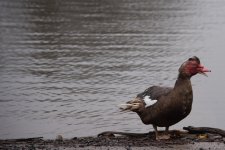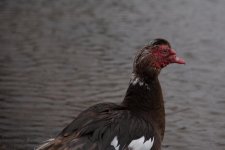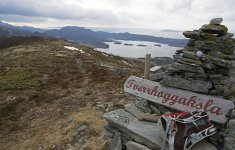Having the new camera will present new opportunities, mostly coming from having to go back to rethink old habits which hold us back far more often than equipment. The D5100 and D7500 differ in image quality surprisingly little since both are well balanced cameras for many uses. The "better" in the better D750 comes at the extremes of light, dark, and speed of use when very familiar with it but in normal or excellent light, little difference can be seen. That is just a statement of how good all cameras have become, any limitations seem to point back to us, the users in limited vision, imagination and knowledge, not the camera in any case.
The zoom is not only good but almost essential in discovering what you really need. Shoot with it for a couple months and then use one of several programs available to catalog the focal length distribution of all your shots to see a list of what focal lengths you used. I suspect from your subject choices you will want two extremes, longer and wider because the bulk of shots will be near the top and bottom range of that zoom based on seeing your photos.
Your people shooting is going to soon bring you to lighting. As a pro or semi pro you need the get the job done and can't have the luxury of waiting for days or even just hours for that 3-4 minutes of good natural light. We are in luck, cheap, but effective alternatives to expensive strobes are available like never before. Being a pro means adapting to the assignment and adapting the environment to the needs of the shoot. Your camera and 1-2 lenses are enough for almost any shoot, but having a bunch of light options will make the difference between pro results and snapshots. Posing and lighting take on far more importance than any cameras gear, and camera and most lenses are good enough if you make the light work for you.
Attend some workshops, volunteer with pros on assignments (pros whose work you admire....no sense learning bad habits from those who your would not want to emulate) because the methods of problem solving and turning limited situations into advantages is what set them apart. ANY shooter can get good photos in perfect conditions but on a set in the studio or in the wild, there is no perfect conditions. Those who are inventive, flexible and quick to solve problems, every time, get the call back and get to quit their day job.
Sessions are usual team work, assembling a dependable team who are better than you are in the tasks that make you look better are the only people to work with, such as a good creative, resourceful makeup artist who really knows how the camera and lighting are different than street makeup will be valuable to you. She will, know for example which foundations react how with xenon flash or with tungsten and not turn color. Same with an on call stylist.
Another reason to be around pros who are not only producing the work you like but are also successful is that they are doing business right. That is a hard part for creative people in any field but the business of photography is business and having that aspect of the craft down to reliable clock work might be the most important lesson they can teach you. Many better photographers are lousy pros who can't get or keep clients are poor in the business end of photography business. That is the same in any craft that involves art, creativity and some hobby aspect. Any career in a field where millions would do it for free is harder to make a living in and one much separate themselves from the amateur pack in definitive and obvious ways to make it. The main difference between good amateur photographers and good pros is the former has the luxury of waiting for optimum conditions and the latter has to create the optimum conditions,every time on time, on someone else's time. Pros need more than anything, creative problem solvers with quick effective novel solutions, and that has nothing to do with the activities of amateurs. Problems come in all shapes and sizes so identifying opportunities quickly, how to either fix the problem or bypass the problem is the skill that has more importance than being a good picture taker.
Good luck, and have fun!
A few more pieces of advice, your equipment is fine, you need nothing to get excellent work ....except there is never enough lighting options so start spending more time in photo galleries, in person,not on-line, art galleries and less time on camera forums and equipment oriented web communities. Don't pixel peep, it ruins the message of the image. Visualize what you seek before releasing the shutter and judge the result with that visualization of intent. With time, the results should start becoming closer to each other. If the result is not like you visualized before, something is wrong, either you did something technically wrong or your visualizing is not related to reality, in either case you need to fix that problem. When seeing a scene look with one eye, it will be much closer to what the camera sees and will help you optimize the features that suggest depth and texture.
Two eyes generate a mental image that is very different in how it visualizes depth and spacial relationships. Slight shifts in position of the point of view make all the difference with one eyed viewing and camera capture. This is VERY important in people shots. A shift of an inch in point of view could make the difference between a winner and a lousy unattractive delete worthy image. You will see that when viewing with one eye much easier than with 2 eyes.
You know the old adage of a camera adds 10 lbs to a woman....actually a lot more than that, and the whole art of posing(posing is more important an art to learn than any camera related knowledge, and also the hardest to learn) is compensating for the fact that the camera is not binocular and does not infer depth, turning every complex scene into a flat plane. The perception 2 eyes allow by compositing a 3 dimensionality in the brain is something you have to work at with a 2 -d world of photography. Posing, camera angles, shadows and MUA are your tools to trick the brain into "seeing" depth which has the slimming effect that binocular vision naturally provides.
Posing is hard to learn because every single subject is unique and it requires a people-personality to connect with the subject, and enough confidence in working to be firm and quick in verbal instructions. Many photographers are less people persons and use the camera to connect with people they otherwise would be shy with.
The best models are not best because of appearance, some are not beauties at all if seen on the street. They excel because they think like a camera and have excellent body control and awareness to smoothly glide from one "look"(a term used for the angles and proportions seeing by the camera, the models know how a slight twist or tilt looks to the lens axis). A models' job is to present "looks" to the camera that fit the goal of the session. An amateur full body, fashion or portraiture photographer would learn more about creating great images from a session with a skilled, experienced model than any class or workshop. If you are planning on doing sessions for people shooting with non-models, consider hiring a skilled model for a few hours and tell her/him you are wanting to learn how to communicate and work with models and posing non-models. Tell them that before hiring them. They like working with photographers who appreciate it is a honed craft and skill, and has little to do with being beautiful or having a great figure. But you will be amazed how different a skilled model approaches the task than your clients or amateur aspiring models assume it to be. Hire another one later until you can identify the "looks" the model presents to the camera and why they did, then extending that new understanding to amateur clients, doing the models work of visualizing the "looks" that would work and guiding in simple direct commands or demonstration(show the subject to allow them to see how you moved your foot/hand/head title/back arch etc from the same distance as they are from the camera).
Creative lighting and posing skills IS the craft of photography of people, not cameras, ISO, pixel density, DR or focal lengths or any such nonsense that fills camera forums and hobby sites. Any camera made and any lens made is capable of gallery wall quality. Very little content is however. Focus on content.



